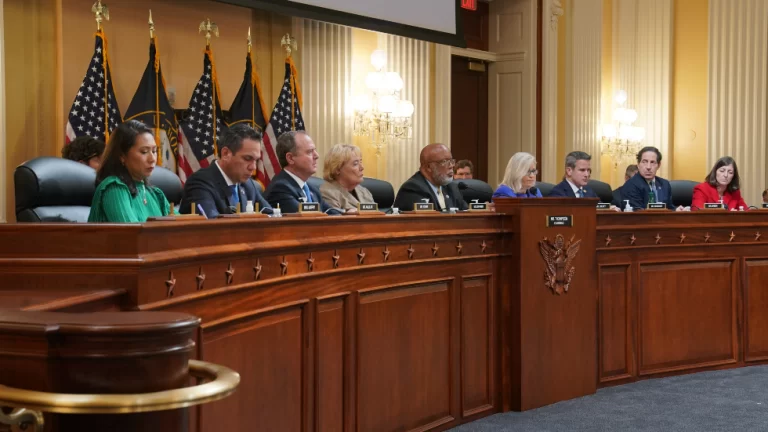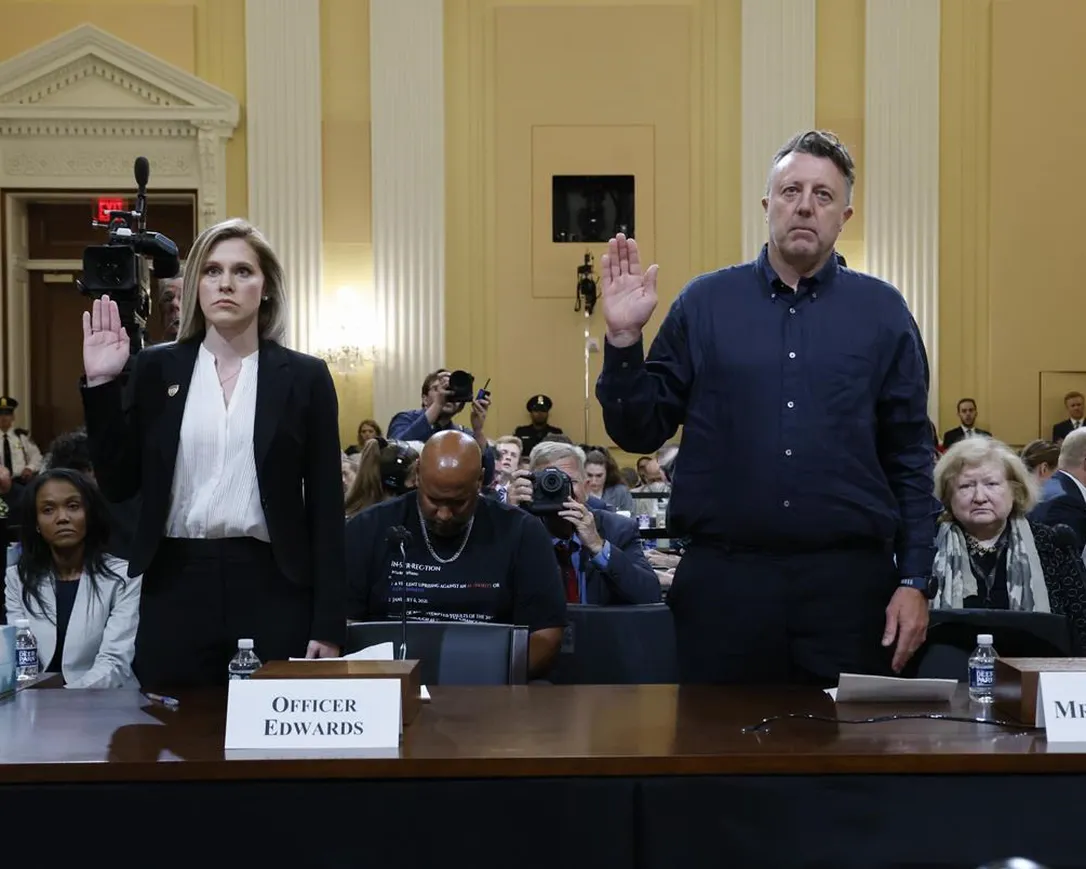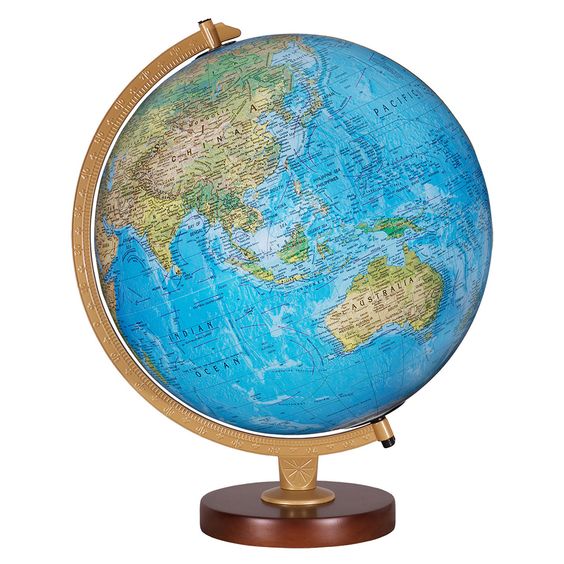
The Congressional committee investigating the 6 January Capitol Hill Riots is going public in a big way.
By Tom Arms
American Democrats have set up giant screens across key locations. Free ice cream is on offer and major political revelations are promised.
Bennie Thompson, committee chairperson, has already accused ex-President Donald Trump of an “attempted coup.”
The Congressional committee investigating the 6 January Capitol Hill Riots is going public—in a big way. Trump and his army of supporters have dismissed the committee’s hearings as a “political hoax.”
The first carefully choreographed hearings started on Thursday night. More are planned next week and later in the month. CBS, NBC and ABC are broadcasting the hearings live. Fox News will not. Republican spin doctors are appearing on the far-right cable news channel to attempt to rubbish the evidence collected from more than 1,000 interviews and 140,000 documents.
The objective of the committee is to 1- prove that Donald Trump was behind the 6 January riots and should be charged with a criminal offense. 2- That people should vote Democrat in the November mid-term congressional elections to protect American democracy and 3- to prepare the ground for a September report which would recommend changes to the electoral system.
They have an outside chance with the first objective; no chance with the second and the hope of progress on the third goal is rapidly receding.
The problem is that while the democrats have exploited the national platform for their attack on Trump and electoral changes, the Republicans have been beavering away at the grassroots. This is significant because it is at the local and state levels where electoral boundaries are drawn, laws are passed and voting is monitored.
In Pennsylvania, for instance, Republicans have selected Doug Mastriano as their candidate for the gubernatorial elections in November. Mastriano is a “Stop the Steal” candidate on steroids. A major part of his campaign is the assertion that the governor and legislature have the right to overturn a state’s popular vote. Mastriano goes on to make it clear that had he been governor in 2020 he would have directed that Pennsylvania’s 20 electoral college votes which the popular vote gave to Joe Biden would have been re-directed to Donald Trump.
 Mastriano is the first nominated Republican gubernatorial candidate to take this anti-democratic stand. But he is unlikely to be the last. Republican primaries for November gubernatorial races will be held later this summer in the key swing states of Arizona, Michigan and Wisconsin. Prominent Stop the Steal candidates are standing in all of them and their campaigns are well financed.
Mastriano is the first nominated Republican gubernatorial candidate to take this anti-democratic stand. But he is unlikely to be the last. Republican primaries for November gubernatorial races will be held later this summer in the key swing states of Arizona, Michigan and Wisconsin. Prominent Stop the Steal candidates are standing in all of them and their campaigns are well financed.
The gubernatorial races are not the only battlegrounds. Two other key electoral figures in most states are the Secretary of State and the Attorney General. The latter is responsible for prosecuting—or not—any breaches of electoral laws. The former is responsible for establishing the electoral framework, overseeing the voting and certifying the results. A raft of Trump supporters are standing for these two offices in state elections across the country.
The federal government is powerless to stop Republican attempts to undermine the electoral process. Management of elections has been constitutionally delegated to the states.
The Trump machine has not stopped at the state level. In Wayne County, the most heavily populated county in the battleground state of Michigan, Republicans have managed to stack the four-person board of election with pro-Trump Stop the Steal canvassers”. Their job is to organize and monitor elections in Wayne County, and certify local results before passing them onto state officials. In 2020, two of Wayne County’s Republican canvassers refused to certify the vote in favor of Biden until they were eventually forced to do so by state authorities.
In addition, more than 20 Republican-dominated states have passed—or are discussing—tightening up election laws to restrict postal ballots, drop off boxes, voting hours and introduce ID cards and some cases even fingerprints.
The federal government is powerless to stop Republican attempts to undermine the electoral process. Management of elections has been constitutionally delegated to the states. The only way that the federal government can intervene is if a state’s electoral procedures blatantly contravene an existing constitutional law such as civil rights legislation.
 World Review
World Review
- Nine weeks. This is how much time—according to the International Grain Council—that the world has before the Ukraine War sets the world on an unalterable course towards world famine. This is because in nine weeks Ukrainian farmers will start harvesting the winter grain crop and start moving it to portside harbors to be shipped out via the Black Sea. The problem is that those silos are already filled with 200 million tons of grain from the previous harvest because of the Russian naval blockade and destruction of Mariupol. If that grain is not moved—and moved quickly—the winter harvest will simply rot in the fields and the same fate awaits the Ukrainian autumn harvest and every subsequent harvest until the silos are emptied and the blockade lifted. On top of that, Western sanctions are blocking the export of Russian grain. Between them, Ukraine and Russia, account for 20 percent of the world’s grain production. They also contribute mightily to the global stores of rapeseed oil, sunflower seeds and oil, barley and (with Belarus) potash for fertilizer. Africa and the Middle East obtain 40 percent of their grain from Ukraine and Russia—95 percent of it shipped via the Black Sea. The UN is desperately trying to negotiate a naval corridor to rescue the grain. Turkey is also trying to mediate and Russian foreign minister Sergei Lavrov was in Ankara this week to discuss the problem. But a diplomatic solution seems unlikely. Russia refuses to cooperate until Western sanctions are lifted. Ukraine accuses Moscow of stealing its grain and Moscow says the responsibility for clearing the mines it laid blocking the harbors is Ukraine’s responsibility. Until those issues are resolved the grain stays in the silos and the harvest in the fields.
- During Cold War One the US and Soviet Union flexed their economic muscle to compete for economic influence in the developing world. America—with its deeper pockets– won. Now the battle is between Washington and Beijing and the economically powerful Chinese are pulling ahead. They are now the number one trading partner for most countries in Africa and Asia. But most worrying for the US is the growth of Chinese investment and trade in what it regards as its backyard—Latin America. Between 2002 and 2019, China’s trade with Latin America and the Caribbean grew from $18 billion to $316 billion. China is now the number one trading partner with every major Latin American country except Mexico. With this trade comes political power and influence. Chinese success was the driving force behind President Joe Biden’s decision to call this week’s Summit of the Americas in Los Angeles but the gathering was not the success he had hoped for. Various initiatives were discussed: a new development bank, training for 500,000 health workers; a food security program and a “climate partnership.” But the US only invited what it regarded as democratic governments to the summit which excluded Cuba, Nicaragua and Venezuela. This angered many of the other attendees (including neighboring Mexico) who registered their displeasure by sending their foreign ministers instead of the head of government as requested. As the US Congress pores over the details of any Latin American program there will doubtless be strings attached to any trade or aid deals. This is in stark contrast with the Chinese. They are interested in only in the money, markets and access to strategic raw materials. The governments with which they deal are free to champion or suppress human rights without comment or interference from Beijing—for now.
- Tired of waiting for a company’s service department to pick up the phone? Frustrated with being refused the right to speak with a human being? Well, so are billions of people in other countries and the Spanish government is planning to do something about it– in Spain at least. It has introduced a bill in the Cortez (the Spanish parliament) to limit telephone wait times to three minutes. It will also force companies to have actual human beings answering the phone rather than machines. The proposed new law would apply to every company with more than 250 employees. The minimum fine would be $10,000 and $100,000 for a repeat offender. Consumption Minister Alberto Garzon said: “Too many companies create bureaucratic labyrinths to stop you from exercising your right to service.”
- Colombia—center of the world’s cocaine production—is in the final stages of an historic presidential election campaign and the result could have a dramatic impact on the world drugs trade. The man most likely to win is former guerrilla fighter Gustavo Petro. One of the main planks in his campaign is to stop the US-supported spraying of the coca crops; redistribute land to the peasants; legalize marijuana and encourage farmers to replace coca with marijuana plants. He also wants to stop the extradition of Colombian drug lords to the US. His opponent Rodolfo Hernandez is at the opposite end of the political spectrum and wants, if anything, to step up the war on drugs. Colombian voters will decide on June 19th.
- Wanted: Volunteer amateur spies to help Ukraine. But hurry, Vacancies are being quickly filled for this unadvertised and unpaid position. They are springing up because companies around the world are trying to circumvent sanctions and employees and keen-eyed members of the public are angry that they are doing so. The Russians, of course, are doing everything they can to help the sanctions-busters. But the army of whistleblowers is growing. Ukraine is helping them with an organization called Russian Tanker Tracking Group which serves as a clearing house for tips on sanctions busting involving Russian oil shipments. “We are being inundated with information,” said a representative. Tanker Tracker sell their information to banks and insurance companies who sever the shipping companies finance and insurance. Mission accomplished.
_________________
 Tom Arms is foreign editor of Liberal Democrat Voice and author of the recently published book “America Made in Britain.”
Tom Arms is foreign editor of Liberal Democrat Voice and author of the recently published book “America Made in Britain.”
[The views and opinions expressed in this article are those of author and do not necessarily reflect the views of Sindh Courier]